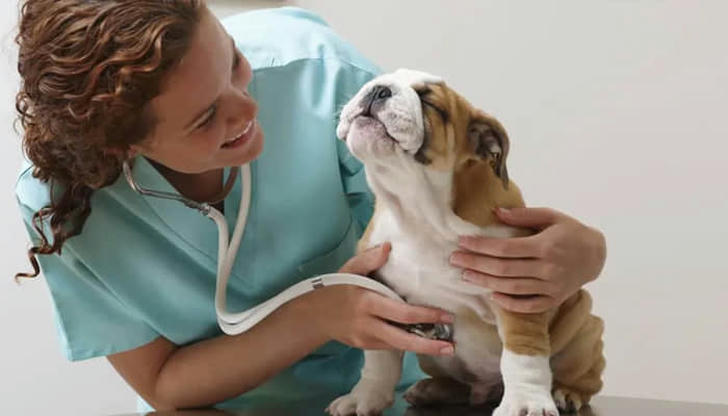Think Your Pet Is Covered? The Truth About Insurance and Genetic Illnesses

If you've ever shared your life with a purebred pet, chances are you've also shared some anxious late-night Googling—researching conditions like hip dysplasia, brachycephalic syndrome, or heart murmurs common to your beloved breed. As more pet owners consider insurance to offset rising vet bills, one question looms large: Does pet insurance cover genetic and breed-specific conditions?
The short answer: It depends.
The full answer? Let's break it down—because understanding how insurers treat hereditary and breed-related issues could mean the difference between peace of mind and a denied claim when it matters most.
1. Are congenital conditions treated the same as hereditary ones in pet insurance policies?
First, let's clear up a common confusion. Hereditary conditions are passed down through genes—think heart disease in Maine Coons or intervertebral disc disease in Dachshunds. Congenital conditions, on the other hand, are present at birth but not necessarily inherited, such as a cleft palate or liver shunt.
Some pet insurance providers lump these two together under "genetic conditions," while others treat them separately. Either way, not all plans cover them by default. It's essential to read the fine print and check whether coverage includes both congenital and hereditary illnesses—or if those are considered exclusions.
2. Which dog and cat breeds are most commonly affected by excluded genetic conditions?

Sadly, some of the most lovable breeds are also the most genetically vulnerable—and some insurers take note of that.
For example:
• English Bulldogs, French Bulldogs, and Pugs are known for respiratory issues (brachycephalic airway syndrome).
• German Shepherds and Golden Retrievers often face hip and elbow dysplasia.
• Persian cats are prone to polycystic kidney disease.
In some cases, insurers exclude these high-risk conditions outright—especially if your breed has a statistically high chance of developing them. So even if your plan includes general illness coverage, a breed-specific issue might still fall into the "we don't cover that" category.
3. Do I need to buy a special rider or add-on for hereditary condition coverage?
Not always—but in many cases, yes.
Some basic pet insurance policies only cover accidents and unexpected illnesses. Coverage for genetic or breed-related conditions may be optional—available only through upgraded plans or as an add-on rider.
For example, Trupanion includes hereditary condition coverage in its core policy, while other providers like ASPCA Pet Health Insurance may only offer it in more comprehensive plans. If you're adopting a breed with known vulnerabilities, it's worth paying a little more upfront to avoid massive bills later.
4. Will genetic testing results affect my pet's eligibility or premiums?

It's a fair question, especially as more pet owners invest in DNA testing kits.
Generally speaking, pet insurers don't require genetic test results to determine coverage or pricing—yet. Most base their premiums on age, breed, and location. However, if a condition has already been diagnosed (with or without genetic testing), it's likely to be considered pre-existing, which usually means it won't be covered.
So while genetic testing can be helpful for proactive health planning, don't assume it will help or hurt your insurance status—unless the test confirms a diagnosable disease that's already symptomatic.
5. Can insurance be denied or canceled after a hereditary condition is diagnosed?
No reputable insurer should cancel your policy just because your pet is diagnosed with a covered hereditary condition after your policy is in place and waiting periods have passed. That said, any symptoms or diagnoses before coverage starts will typically be classified as pre-existing—making them ineligible for reimbursement.
Where pet owners get into trouble is assuming a long-standing issue will be covered after signing up. If your Labrador has been limping for six months and you apply today, any treatment related to that issue will likely be excluded.
Pro tip: Start coverage early, ideally while your pet is still young and healthy.
6. What's the best time to insure a breed-prone pet to ensure coverage for genetic issues?

Timing is everything in pet insurance. The best time to buy? Yesterday.
But in all seriousness, most experts agree: the younger, the better.
The earlier you enroll, the more likely your pet's future health issues will be covered, because they won't be flagged as pre-existing.
This is especially crucial for high-risk breeds. Waiting until your pet shows signs of trouble—no matter how mild—can close the door to full genetic condition coverage. And once that door closes, it doesn't usually reopen.
Final Thoughts: Know Before You Buy
Pet insurance can offer financial protection against genetic and breed-specific conditions—but only if you choose the right plan, at the right time.
Here's what smart pet parents do:
• Compare policies carefully. Look specifically for coverage of congenital and hereditary conditions.
• Understand your breed's risks. Know what conditions your pet is prone to, and ask insurers directly about them.
• Insure early. Don't wait for symptoms or diagnoses. The sooner you're covered, the more peace of mind you'll have.
• Be honest on applications. Omitting prior symptoms can lead to denied claims or policy cancellations.
Your pet may have been born with their genes, but you control how well they're protected. With a little research and the right coverage, you can help ensure that breed-specific health concerns don't become budget-breaking emergencies.
